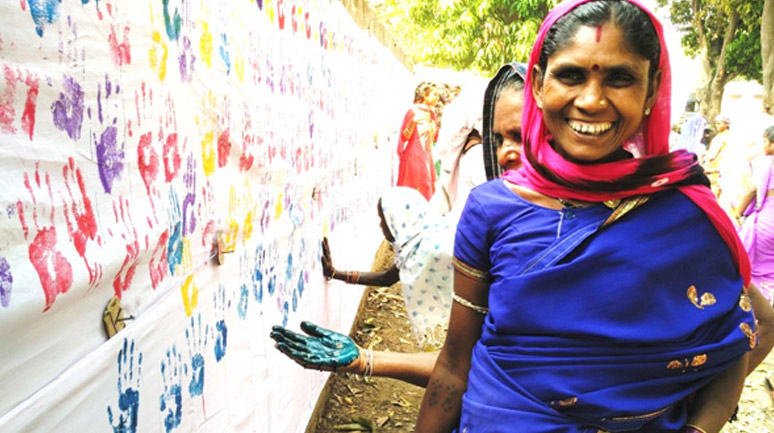

Solidarity- Personal is Political
“Sometimes, women suffer silently and secretly and they also die in the process like it has happened in the past in our knowledge. Could we have saved those women? It is important to intervene even if she doesn't want to raise the issue. The injustice must be brought to notice. If one woman is insulted, it is a blow to the dignity of all women.All women have one sense of dignity. It is not about individual women - that is the only way we will move forward in a united way. If the didi does not have the courage, it is important for the SHG to step in.”
T he above is a quote from a group discussion with women who are SHG members from the Gond community in Bhanupratappur, Chattisgarh. The discussion was a part of a dissemination event on findings from a recent research on gender justice as a critical aspect of social justice and the way itplays out among the Gonds, an Adivasi or tribal community in the state of Chhattisgarh in India.
The study involved a mixed methodologies that included semi structured interviews, focus group discussions and a survey with men and women in two sites viz. Bhanupratappur and Narharpur where PRADAN and BIHAN ( NRLM) have been working with women’s collectives.
Exploring tensions within the Gond community in India
The Adivasisare the poorest and most socially marginalized social group in the Indian context. The historical nature of their disadvantage, along with those of dalit(formerly ‘untouchable’) castes, is recognized by the Indian constitution which put in place various forms of affirmative action in the form of reservations in legislation, public sector employment and government-run educational institutions. Additional special protections have also been imposed by the state in relation to tribal groups, for instance, to acknowledge the significance of land and forests to their identity and livelihoods. In other words, alongside the commitment to the individual rights of citizens guaranteed by the constitution, there is also recognition of certain group rights reflecting criteria of caste and indigeneity.
Group rights, as the literature on the topic recognizes, can have the effect of suspending some of the rights of individual group members, particularly those who occupy a marginal status within them. The feminist literature on this topic has pointed out that it is frequently the rights of women within these groups that tend to be overridden by the recognition of the rights of their group.
Our research explored these tensions from the perspectives of men and women from the Gond community. It used qualitative and quantitative research to gain insights into how they define themselves as Gond, how they distinguish themselves from other communities and their views about community norms and values. We also explore the significance of gender in differentiating the experience of growing up within the Gond community and in the views held by men and women with regard to the meaning of being a Gond. Finally, our research asks whether the efforts of government and civil society to promote self-help groups among women within these communities have brought about change in the lives of women and their families and now these changes are viewed by different sections of the community.
Group rights and gender justice: exit, voice and loyalty
Within the context of the injustices experienced by Gond women, questions of consent and consensus within the community play an important role in legitimizing certain kinds of internal inequalities, including everyday forms of gender inequality. Such interpretations of consent and consensus have been questioned by feminists on a number of grounds. A useful framework for discussing their arguments is provided by Hirschman’s concepts of exit, voice and loyalty which help to frame the options available to women as subordinate members of subordinate groups. Commonly, loyalty is attributed to those who do not object to discriminations against them and neither do they choose to exit from the community. This requires examining the ideas of voice and exit and their relationship more deeply. It is assumed that these are present and viable options for women when they experience discrimination; therefore silence implies consent and loyalty.
The research foregrounds the need for building spaces for women to strengthen their voices and also realistically examine the notional option of exit given that it has huge social costs for women and there are relevant questions around exit into what?. Based on the findings, the research proposes that it may be more useful to focus on strengthening women’s capacities for voice rather than options for exit.

